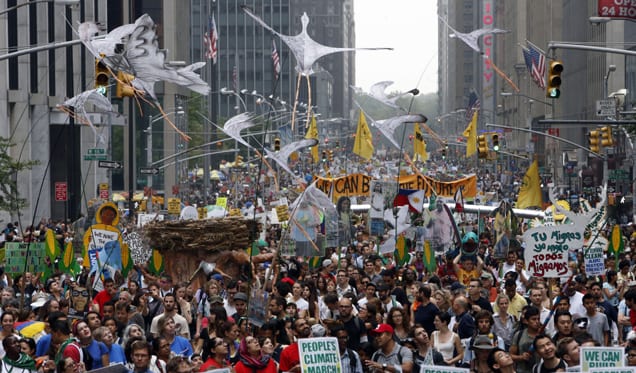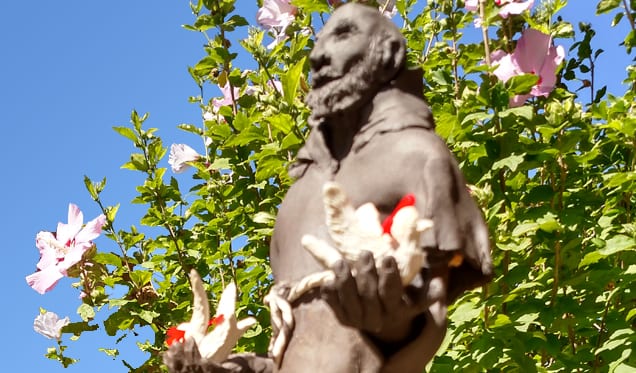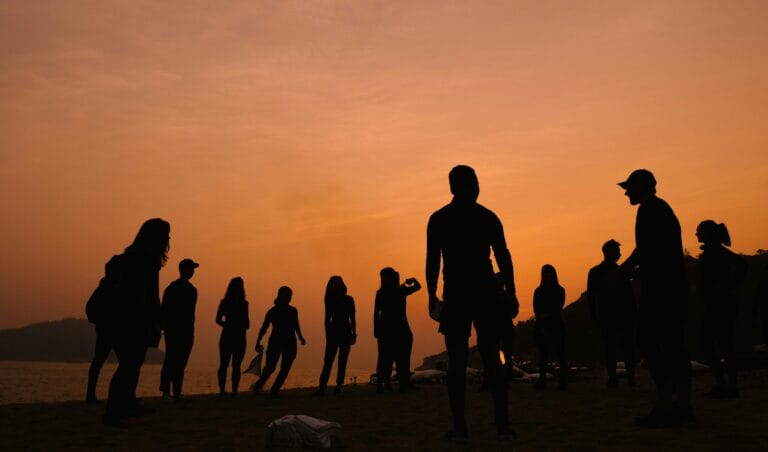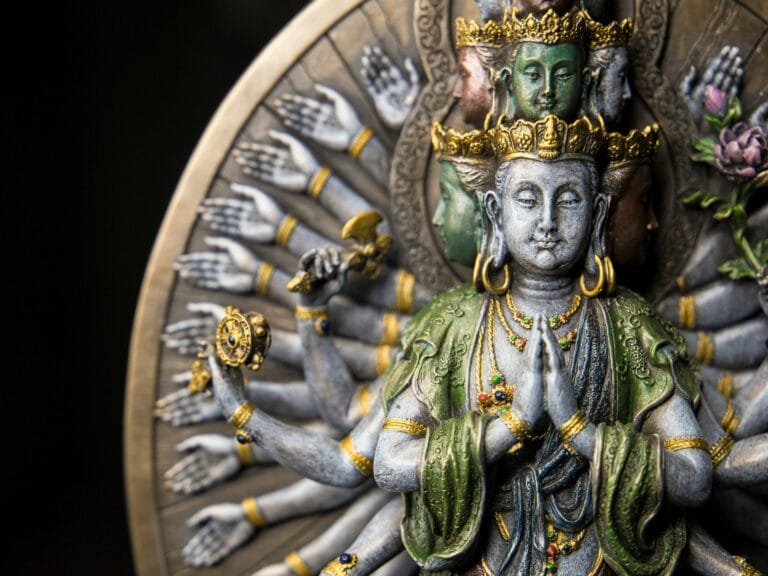A year ago many of us were looking forward to the Peoples Climate Mobilisation which was timed to coincide with the United Nations Summit on Climate Change. While the New York and global outpouring was monumental, bringing unprecedented attention and hope to the imperative of climate change action, it was also fleeting. In the year since there have been efforts and steps forward on both the most local and international levels although the elements underlying the crisis are little changed. Now, we are on the cusp of the December Paris Climate Conference, at another point where hope meets fear.
Despite the compelling arguments for immediate and deep-seated change there are many obstacles, as dynamic political, social, economic, natural and emotional forces converge around the process. On the one hand we have endured another cycle of painstaking negotiations, forestalling and posturing – in other words, another manifestation of the three poisons of passion/attachment, ignorance and aggression.
On the other hand we have been buoyed by Laudato Si’/Praised Be, On Care for our Common Home, Pope Francis’ eloquent imploration for humanity to embody environmental wisdom within a broader commitment to social and spiritual transformation. The Pope’s plea is only the most prominent within a chorus of passionate and compassionate discourses on the spiritual and moral dimensions of the climate crisis. Faith communities of every tradition are bringing an urgent and ever more powerful message to the deliberations articulating a personal and collective sense of love and responsibility for the well-being of global humanity and for nature itself.
Beyond just an environmental emergency we understand that this is also an impending humanitarian and social tragedy that is already affecting some of the globe’s most vulnerable communities. And we know that in its essence this is also a crisis of the spirit stemming from our loss of connection with the sacred nature and basic goodness of both our world and of our own nature. This is why, as people with a strong spiritual orientation, we understand that climate change is a spiritual and moral issue.
This is unfolding at a moment when our spiritual and temporal values as Buddhists are being sorely challenged as we grapple with being meditators, practitioners and citizens amidst a host of daunting situations from the horrific (sectarian warfare and unconstrained violence of many types) to the ridiculous (the chauvinistic, egoist Trump phenomena). It is enough to make many, including me, simultaneously very sad and angry. And of course this has drawn many of us into a degree of civic activism we might at one time have thought too much of the world of affairs as we join with the vigorous and sometime militant campaigners who are pushing back against these dark forces.

Figuring out how to be involved in this, in what we have been called to do is a formidable task. I realize that it’s not so much that we are simply trying to meditate our way out of the problem — even though many of us have tried and keep trying. It is hard to be a meditator and perhaps even harder to be an activist. Rather, the dharmic teachings are talking about working with the fabric and nature of reality and creating a paradigm shift within that by applying inner peace and bravery to develop outer compassionate action.
Buddhists are being sorely challenged as we grapple with being meditators, practitioners and citizens.
This is particularly important since amidst such emotionally fraught debates it is easy to lose the personal tether to our humanity. Controversial issues tend to breed divisiveness, ideological rigidity and a tendency to harden our hearts by objectifying those we disagree with as enemies. As a more senior student in the dharma, therefore, one of the reasons I am personally motivated to be active in this movement is my abiding conviction that violence and aggression such as has been perpetrated on our environment cannot successfully be countered with further aggression.
As the voice of faith communities we must represent another way – one that simultaneously raises our concern and compassion, highlighting the genuinely human dimension of this predicament. As Buddhists our engagement not only adds impetus to the climate change movement but can add a dharmic perspective that brings the root of underlying causes into visibility and awareness and hopefully affects the course of advocacy. I’d like to explore this dimension further, acknowledging my lens as a practitioner shaped within the Kagyu and Nyingma lineages of Tibetan Buddhism and particularly within the Shambhala stream first articulated by my root guru Chögyam Trungpa Rinpoche and now transmitted by his lineage heir Sakyong Mipham, Rinpoche.
As suggested, the climate change movement has been a multi-decade rollercoaster of hope and fear. As Buddhists, patterns of inflation and deflation, optimism and pessimism, hope and fear should not be a surprise. I daresay that at least sometime all of us on the Noble Eightfold Path resist letting go of our projections and struggle to find the way, caught between moments of openness and multi-moments of believing and reinforcing the cocoons of our self-justifying beliefs.
The same patterns manifest on larger scales of community and society in moments of aspiration, optimism and even conviction regarding the potential of realizing a truly decent future contrasted with periods of deep consternation or even despair in the face of sizeable difficulties and negative attitudes dragging us down. Unless I/we can get beyond or more likely work with these extremes on both the personal and collective levels I believe there is little opportunity to move a genuinely transformative path forward.
Continue reading part two in this series wherein Marty posits a practice approach that forges a workable path between our aspirations for change and the realities of creating change.








